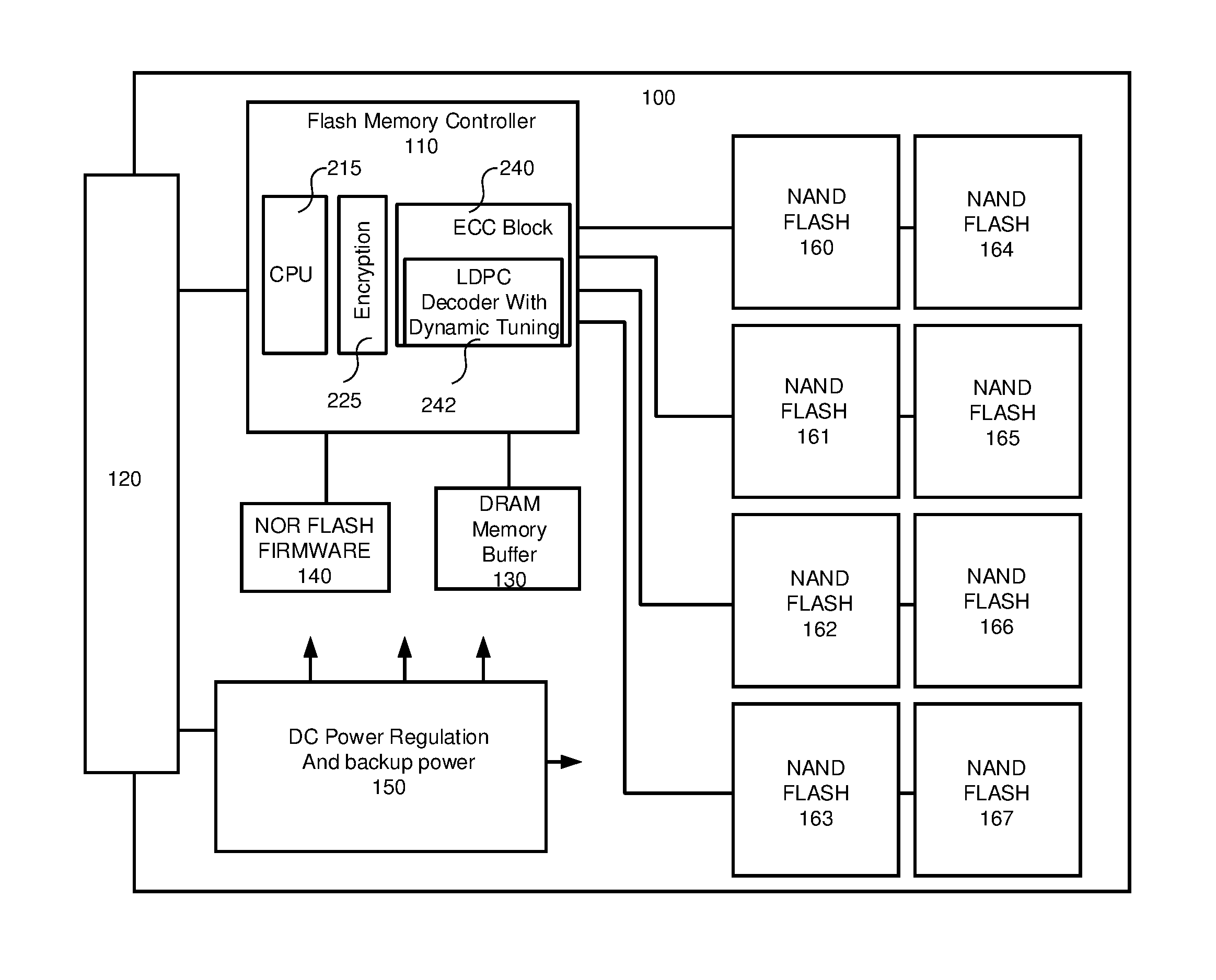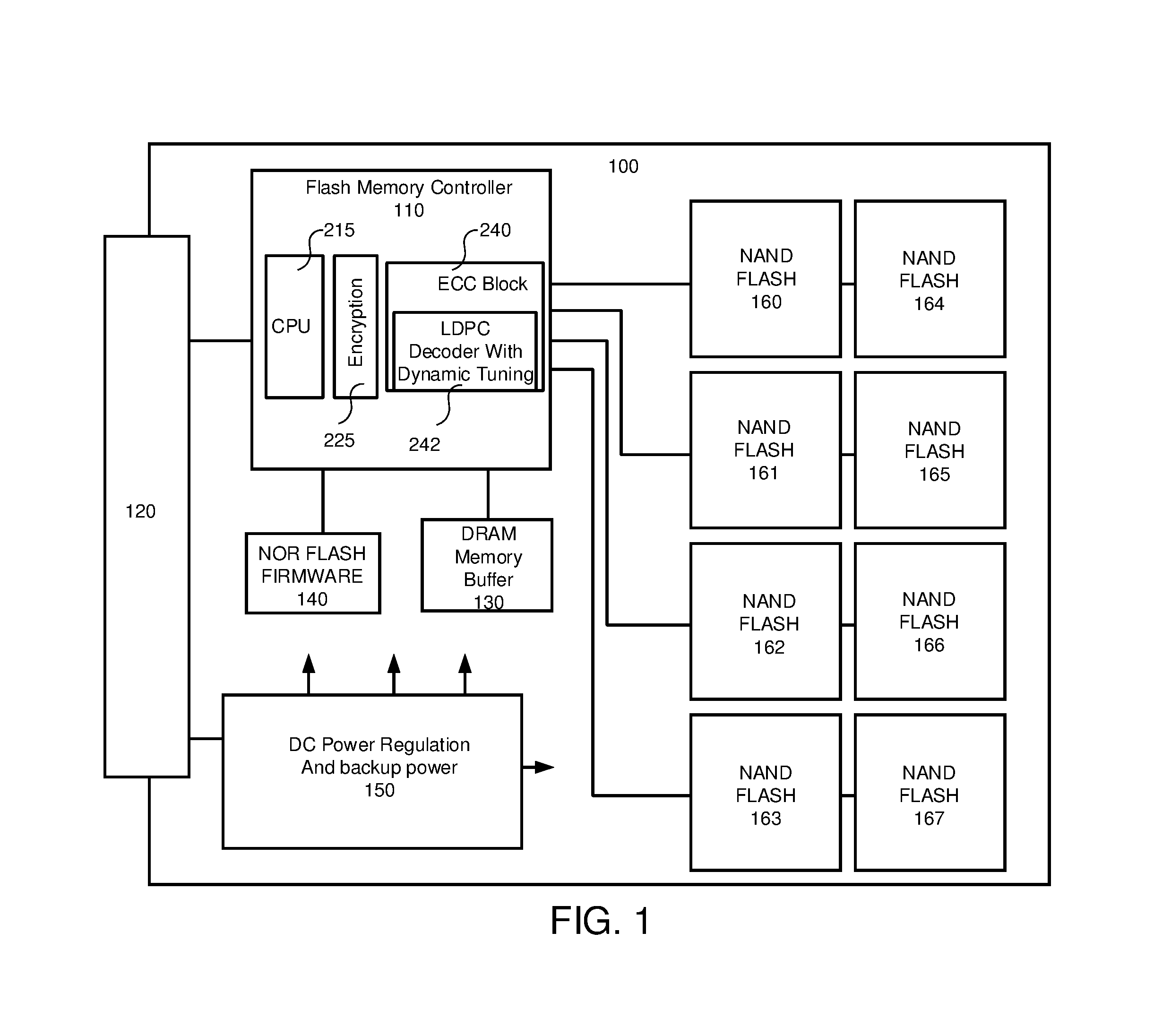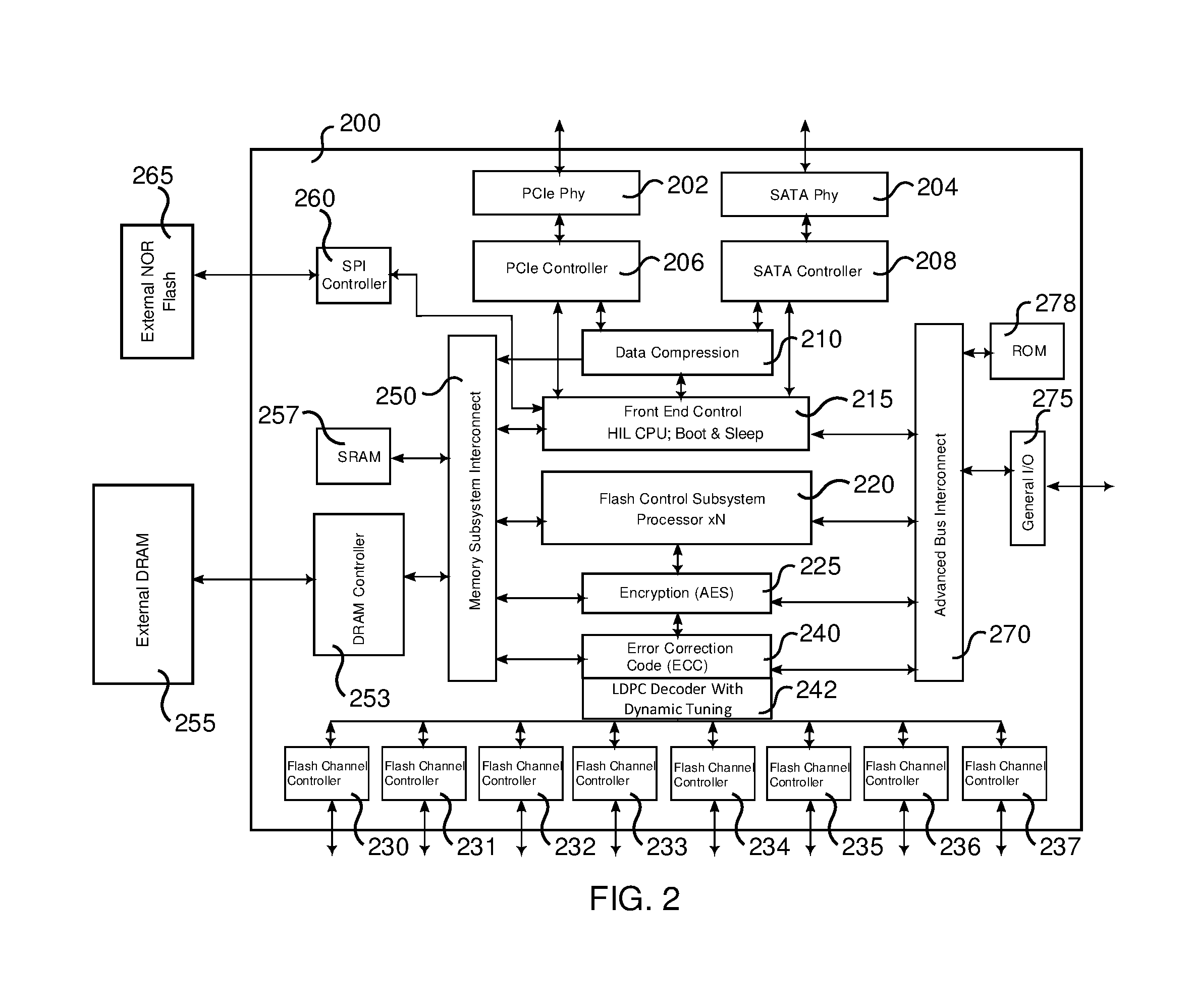Non-volatile memory controller with error correction (ECC) tuning via error statistics collection
a non-volatile memory controller and error statistics technology, applied in the field of non-volatile memory controllers, can solve the problems of flash cell deterioration, low reliability and endurance, and the mechanism for programming a stored charge is relatively imprecise, so as to improve the operation and performance of the soft-decision ldpc decoder.
- Summary
- Abstract
- Description
- Claims
- Application Information
AI Technical Summary
Benefits of technology
Problems solved by technology
Method used
Image
Examples
Embodiment Construction
[0028]FIG. 1 shows a solid state drive (SSD) ecosystem for understanding aspects of the present invention. A SSD may include a flash memory controller 110 in combination with other components such as NAND flash memory devices. The flash memory controller 110 provides the link between the storage or expansion bus interface 120 (which may be SATA, SCSI, SAS, PCIe or similar) and the NAND flash memory devices themselves, 160-167. The number of flash memory devices may vary according to the storage capacity of the individual devices and the SSD as a whole, but would typically be a power of 2 such as 4, 8, 16, 32 and so on. The flash memory controller may comprise a single semiconductor device with on-chip ROM for firmware storage and RAM for working data structures and buffers, but there may also be provided external DRAM 130 for additional space for large data translation tables and buffers and external NOR flash 140 for upgradeable firmware storage. To provide the various voltages req...
PUM
 Login to View More
Login to View More Abstract
Description
Claims
Application Information
 Login to View More
Login to View More - R&D
- Intellectual Property
- Life Sciences
- Materials
- Tech Scout
- Unparalleled Data Quality
- Higher Quality Content
- 60% Fewer Hallucinations
Browse by: Latest US Patents, China's latest patents, Technical Efficacy Thesaurus, Application Domain, Technology Topic, Popular Technical Reports.
© 2025 PatSnap. All rights reserved.Legal|Privacy policy|Modern Slavery Act Transparency Statement|Sitemap|About US| Contact US: help@patsnap.com



